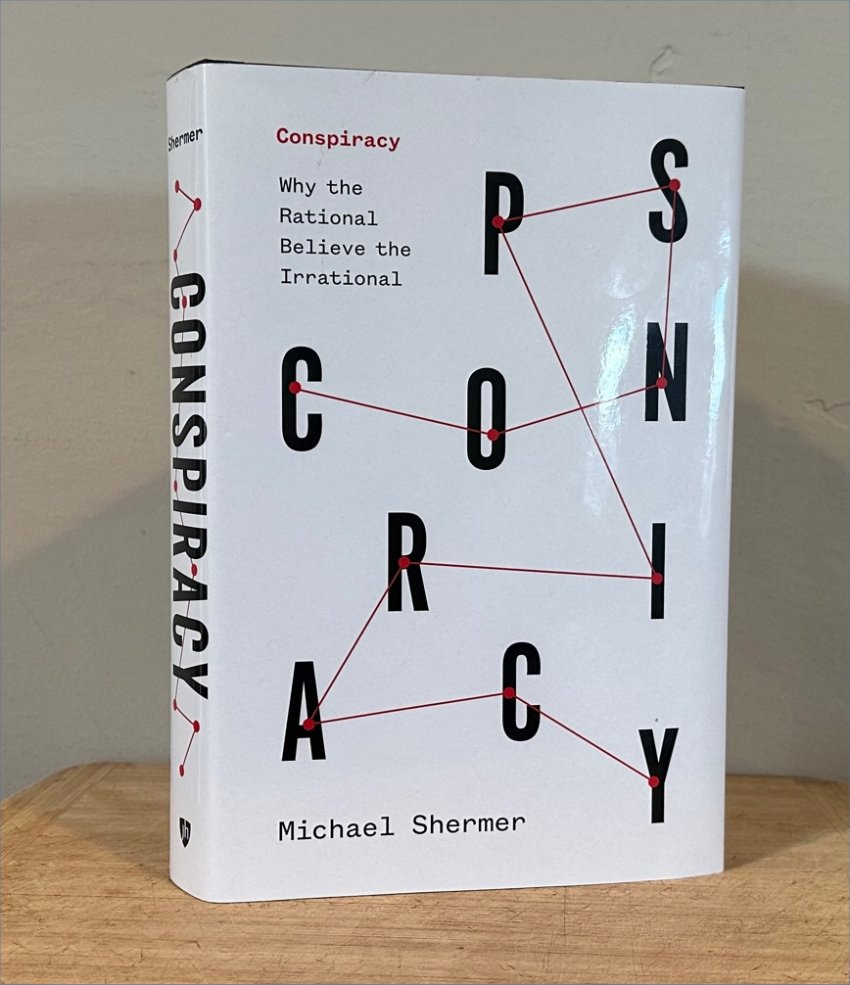In the closing pages of Michael Shermer’s new book, he quotes Jonathan Rauch’s list, from his book The Constitution of Knowledge, about social rules for turning disagreement into knowledge. Shermer expands upon them, and for one of them provides a summary of the whole of the arc of the Enlightenment and moral progress, including ideas from Steven Pinker’s books and his own earlier book The Moral Arc (review here.) Beginning page 269 with item 9.
Most of the moral progress that unfolded over the centuries — the abolition of slavery, torture, cruel and unusual punishment, capital punishment, corporeal punishment, witch crazes, inquisitions, pogroms, and violence in general, along with the recognition of and legal foundation for civil rights, women’s rights, LGBTQ right, children’s rights, workers’ right, and even animal rights — was ultimately the result of the application of reason and science to understanding causality and solving problem, in order to increase the survival and flourishing of more people in more places. Scientific naturalism is the principles that the world is governed by the laws of nature and forces that can be understood, and that all phenomena are a part of nature and can be explained by elemental causes, including human cognitive, moral, and social phenomena. In the centuries following the Scientific Revolution, the gradual but systematic displacement of religious dogmatism, authority, and supernaturalism by scientific naturalism, particularly its application toward explaining the human world, led the widespread adoption of Enlightenment humanism, a cosmopolitan worldview that places supreme value on science and reason, eschews the supernatural entirely, and relies exclusively on nature and nature’s laws — including the fundamental characteristics of humans and the laws and forces that govern us and our societies — for a complete understanding of the cosmos and everything in it, from particles to people.
Scientific naturalism and Enlightenment humanism made the modern world.
Then follows a list of tenets, from a speech Shermer gave at the 2012 Reason Rally on the Mall in Washington DC.
- Instead of divining truth through the authority of an ancient holy book or philosophical treatise, people began to explore aspects of nature for themselves.
- Instead of looking at hand-drawn and -painted illustrations in botanical books, scholars went out into nature, to observe what was actually growing out of the ground.
- Instead of relying on the woodcuts of dissected cadavers in old medical texts, physicians opened bodies themselves, to see what was there with their own eyes.
- Instead of human sacrifices to assuage the angry weather gods, naturalists made measurements of temperature, barometric pressure, and winds, to create the meteorological sciences.
- Instead of enslaving people because they were a lesser species, we expanded our knowledge to include all humans as members of the species, through the evolutionary sciences.
- Instead of treating women as inferiors because a holy book says it is a man’s right to do so, we discovered natural rights, dictating that all people should be treated equally, through the moral sciences.
- Instead of a supernatural belief in the divine right of kings, people employed a more down-to-earth credence in the legal rights of democracy, and gave us political progress.
- Instead of a tiny handful of elites holding most of the political power by keeping their citizens illiterate and unenlightened, through science, literacy, and education, people could see for themselves the power and corruption that held them down, so they began to throw off their chains of bondage and demand their natural rights.
Shermer also provides a list of reasons to defend free speech, and then concludes,
After reading this book, if you object to any of my arguments, disagree with any of my conclusions, or dissent from my point of view, the norms and customs of free speech and open inquiry are what allow you to do so. Nonetheless, the volume is at least a start to reestablish trust in the institutions we depend on for determining the truth about the world. It remains not just the domain of conspiracy theorists, but instead belongs to anyone who is curious and desires to understand the truth. Call it the truth-based community, one to which we should all belong.






